Context
I am currently trying to setup Windows Subsystem 2 for Linux in my Windows 10 Pro OS. After downloading Ubuntu 20.04 LTS from the Microsoft store, installing it, and creating my user profile, I started wondering how I could run and use all the Ubuntu programs that have a graphical interface. I then discovered Xming, which allowed me to establish a connection between my Windows OS and the Ubuntu kernel via IP: everything works fine, except for the fact that since there is no way to set a static IP for the WSL virtual ethernet card, every time I restart my PC I have to check and change the address to which I want to connect. I am currently doing this by editing each time my .bashrc file, and adding a line like
export DISPLAY=172.29.112.1:0.0
which corresponds to the IP I have listed in the IPv4 sub-section of the WSL web configuration. I obtained it by running
ipconfig
inside a PowerShell/Windows terminal. The two zeroes I added to the IP are the ports requested by Xming, (and also, indirectly, the cause of my problem).
My idea has been to try and automate all this process, so that every time I boot my PC I just have to launch Xming and Ubuntu.
Issue description
The problem is that I had close to zero knowledge about terminal syntax, so I managed to come up with just a partial solution: I managed to automatically load the correct IP, but I cannot append the ports without deleting part of the IP itself. This is what I came up with so far:
export DISPLAY=$(/mnt/c/Windows/System32/ipconfig.exe | grep IPv4 | cut -d: -f2 | awk '{print $1}' | awk 'END{print}')
This line, added to my .bashrc, allows me to get the correct IPv4, which happens to always be the one at the end of the list (hence the second awk call). It invokes the same ipconfig one uses inside Windows, so that I can obtain the desired address.
I studied a bit how this syntax works and found some interesting solutions to the next problem, i.e. attaching the ':0.0' at the end of the query above. One, for instance, is this. Unfortunately, even if replicating that solution works fine with normal strings, it seems like my IP address is stored as a different kind of variable, or at least it behaves differently: trying to apply that same concept makes so that the initial portion of my IP gets overwritten.
What I want
A (possibly) one-line formula like the one I made, but which also incorporates the ports at the end, without overwriting any of the IP's digits. In any case, the DISPLAY variable assigned in the .bashrc must be of the same type of the current one I have with my partial implementation, as I need it to be read by Xming, or any other program. I would also appreciate some explanations about the solution and about the reason of the overwriting phenomenon I described.
What I have tried so far
I have devoted all the afternoon to this issue, starting from learning a little bit of the syntax of the Ubuntu terminal, as well as trying to find examples of sed and awk, among other functions. I also tried many slightly altered versions of my query in order to fit in the ports, but all these tries only yielded syntax errors or the same overwriting effect described above.
Why I am asking this
Given that I expect this to take me probably a little while to solve, and that I am confident this should not be time-consuming at all for anybody with some experience in the field, I hope to receive some help.
Thank you!
Update
After several tries, it turns out that the WSL IP sub-category could indeed be listed in a different position than last. I thought the entries would follow the alphabetical order, but it is clear now that that was just a coincidence.
Thus, if I have something like this:

I now have the need to actually grep this precise portion of the ipconfig output, rather than blindly picking the last of the list as I have been doing until now. I have tried to wrap my head around your solutions, and with some further research I managed to find a way to make it work regardless of the postioning:
export DISPLAY=$(/mnt/c/Windows/System32/ipconfig.exe | awk '/WSL/{getline; getline; getline; getline; print}' | grep IPv4 | cut -d: -f2 | tail -n1 | sed 's/\r//g' | awk 'END {print($1":0.0");}')
obtained attaching @Zilog80 formula. What I understood is that getline should read and ignore the current line and move to the next one, so by doing that 4 times I could apply the rest of the formula to the line I was originally interested in. There are surely better ways to do it, but I can confirm that this is pretty reliable, even if not elegant. Looking forward to see your suggestion/improvements also for this update.
ps I removed part of the IPv6 as I am not aware if that is sensible information; sorry if that was not the case.